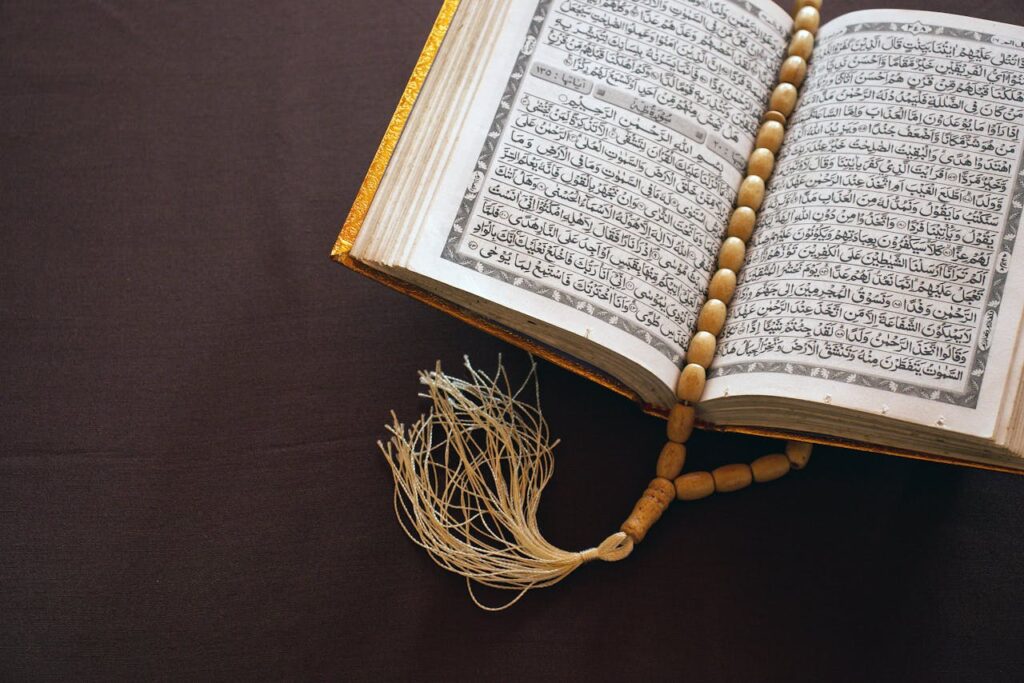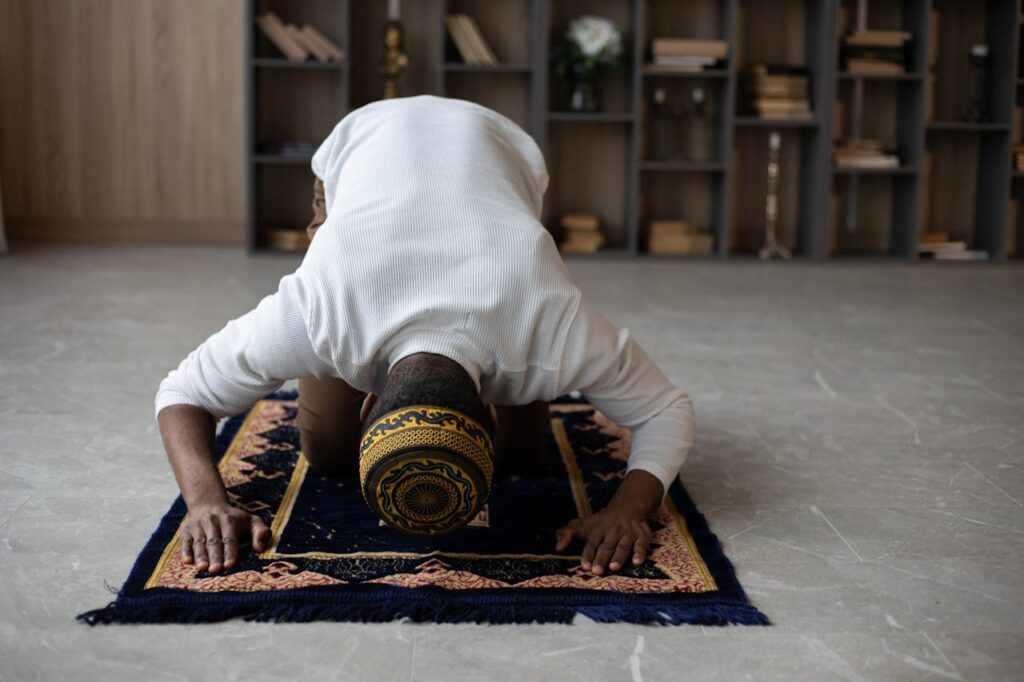As you embark on this journey to deepen your trust in Allah, you’ll discover its far-reaching effects. From conquering fears to finding strength in hardship, trust in Allah serves as a cornerstone of spiritual growth. This article will explore how this trust can enhance your relationship with Allah, influence your daily actions, and bring about positive changes in your life. You’ll learn practical ways to cultivate trust, understand its importance in Islamic teachings, and see how it can lead to a more fulfilling and purposeful existence.
The Power of Trust in Allah

Understanding Allah’s attributes
To truly trust in Allah, you need to understand His attributes. Allah has 99 beautiful names, each revealing a unique aspect of His nature. By learning these attributes, you can deepen your understanding and love for Allah, which in turn strengthens your trust in Him. For instance, Al-Akbar means Allah is the Greatest, surpassing everything in existence. Al-Wadud signifies that Allah is Loving, reminding you of His boundless affection for His creation.
Recognizing human limitations
As you cultivate trust in Allah, it’s crucial to acknowledge your limitations. The Quran teaches that human imagination is restricted by what we observe and experience. This limitation makes it challenging for us to fully grasp concepts like Allah’s timelessness and eternity. Recognizing these constraints helps you to rely more on Allah’s infinite wisdom and guidance.
Embracing divine wisdom
Trusting in Allah means embracing His divine wisdom, even when it’s beyond your comprehension. The Quran emphasizes that Allah’s plan surpasses human understanding. By surrendering to His will, you open yourself to blessings and spiritual growth. This trust can bring about a sense of peace that transcends human comprehension, allowing you to release the burden of trying to control every aspect of your life.
When you place your trust in Allah, you’re acknowledging His wisdom and mercy, knowing that He has a perfect plan for you. This trust can bring comfort, even in times of uncertainty. Remember, Allah’s knowledge surpasses all understanding, and He knows what’s best for you. By letting go of control and trusting Allah, you’re opening up to His infinite blessings and guidance.
Transforming Fear into Faith

Overcoming anxiety and worry
To overcome anxiety and worry, you need to shift your focus from worldly concerns to trust in Allah. Recognize that many worries stem from giving too much priority to temporary aspects of life. Instead, cultivate a firm tawakkul (trust) in Allah’s plan, relying entirely on Him rather than expecting too much from others.
Remember that Allah has already determined your rizq (provision) before you were born. This understanding can help alleviate concerns about the future. Make Allah your primary intention behind everything you do, believing there is khayr (good) in all circumstances you face.
Building courage through trust
Courage isn’t the absence of fear but the willingness to act in obedience to God’s calling, relying on His strength and guidance. To build this courage, deepen your relationship with Allah through prayer, worship, and studying His Word. Meditate on Allah’s promises and faithfulness throughout Scripture, taking comfort in His reliability.
Embrace obedience by stepping out in faith, even when it feels uncomfortable. Trust that Allah will equip and empower you for the task. Reflect on past experiences where Allah has provided courage and deliverance, using these memories to fuel your present courage.
Finding strength in vulnerability
Finding strength in vulnerability involves surrendering to Allah’s plan and trusting in His sovereignty. Realize that you’re not broken, abandoned, or forgotten, but that Allah has given you exactly what you need. Tawakkul (trust in Allah) provides the lens through which to form your outlook and actions, bringing about the best outcome.
By exercising patience in all situations and staying persistent in the face of challenges, you develop the faith and discipline needed to rely entirely on Allah. Cultivate gratitude, recognizing that what hasn’t come your way today may await you in the future. Remember, with every hardship, Allah has promised ease.
Tawakkul in Times of Hardship

Maintaining hope during trials
When you face hardships, it’s crucial to maintain hope and trust in Allah’s plan. Remember that Allah doesn’t burden you with more than you can handle. Even in the darkest moments, there’s always a light at the end of the tunnel. By focusing on Allah’s mercy and having confidence in His generosity, you can find strength to persevere.
Learning patience through adversity
Patience is a virtue that’s often cultivated through adversity. The Prophet Muhammad (peace be upon him) said, “There is much good in being patient with what you hate”. By exercising patience in all situations, you develop the faith and discipline needed to rely entirely on Allah. This patience not only helps you endure trials but also raises your rank in front of Allah.
Discovering blessings in disguise
Often, what appears as a hardship can be a blessing in disguise. Allah says in the Quran, “It may be that you dislike a thing that is good for you and that you like a thing that is bad for you. Allah knows but you do not know”. This perspective can help you approach challenges with a positive attitude, trusting that Allah has a greater plan for you.
Tawakkul, or trust in Allah, provides a lens through which to form your outlook and actions. It frees you from being perturbed by life’s tremors and grants you contentment and ease. By maintaining tawakkul during hardships, you’re not only strengthening your faith but also opening yourself to the hidden blessings and wisdom in Allah’s plan.
Strengthening Your Relationship with Allah

Developing a personal connection
To strengthen your relationship with Allah, it’s crucial to develop a personal connection. This involves understanding Allah’s attributes and recognizing your limitations. The Qur’an teaches that human imagination is restricted by what we observe and experience. By acknowledging these constraints, you can rely more on Allah’s infinite wisdom and guidance.
One effective way to deepen your connection is through contemplative prayer. This practice encourages you to let go of distractions and pursue an inner stillness, creating space for the Holy Spirit to work in your heart. Remember, Allah is not looking for reasons to punish or reject you. His names teach us that He is Merciful, The Source of love (Al-Wadud), and The Source of peace (As-Salaam).
Increasing acts of worship
Regular prayer and recitation of the Qur’an serve as reminders of your purpose in life and the values you should uphold. The Prophet Muhammad (peace be upon him) said, “The example of the five daily prayers is like that of a clear-water river flowing in front of your houses in which a person washes himself five times a day – cleansing him from all dirt”. This hadith emphasizes the purifying nature of consistent prayer.
To increase your acts of worship, consider incorporating dhikr (remembrance) into your daily routine. The Qur’an states, “Unquestionably, by the remembrance of Allah hearts are assured”. Dhikr is the essence of reviving the heart and soul, bringing tranquility to your inner being.
Seeking knowledge about faith
Seeking knowledge about your faith is crucial for spiritual growth. The pursuit of religious knowledge is considered the greatest supererogatory act of worship, according to Imam al-Nawawi; After learning basic theology and fiqh, continue attending circles of knowledge to enrich your understanding of Islam and appreciate it more deeply.
Reading and studying the Qur’an is essential for growing in faith and understanding Allah’s will. By applying what you learn in your daily life, you can strengthen your spiritual muscles and deepen your relationship with Allah. As you increase your knowledge, remember to balance it with action, as true faith is reflected in both knowledge and practice.
Conclusion
Trusting in Allah has a profound impact on one’s life, bringing about peace, resilience, and spiritual growth. This trust helps to transform fear into faith, providing strength during hardships and deepening one’s relationship with Allah. By embracing Allah’s wisdom and recognizing human limitations, individuals can find comfort in His perfect plan and open themselves up to His infinite blessings and guidance.
To wrap up, cultivating trust in Allah is an ongoing journey that involves developing a personal connection, increasing acts of worship, and seeking knowledge about faith. This process leads to a more fulfilling and purposeful existence, allowing individuals to navigate life’s challenges with confidence and hope. By putting their trust in Allah, people can experience a transformation that touches every aspect of their lives, bringing them closer to their Creator and to their true potential.
FAQs
What are the advantages of placing trust in Allah?
Placing trust in Allah alleviates anxiety, stress, and depression, and can prevent both physical and psychological illnesses. Trusting in Allah provides a strong support during the most challenging times, offering strength and hope.
What does Allah instruct about trust in the Quran?
Allah commands us to place our trust in Him, as highlighted in several verses of the Quran. For instance, Quran [25:58] emphasizes trusting the Eternal One who never dies, and [33:3] and [27:79] reiterate putting your trust in Allah, acknowledging His awareness of all sins.
Is it possible for Allah to alter my destiny?
Yes, Allah can change destiny. Prophet Mohammad (Peace be upon him) emphasized the importance of making Dua (supplication) with humility and trust in Allah. He stated that nothing can change the divine decree except for Dua.
How can I strengthen my trust in Allah?
To develop trust in Allah, engage deeply with the Quran, make sincere and extensive supplications (Dua), release your attachment to outcomes, maintain a positive view of Allah, and never underestimate His capabilities. These actions will help fortify your trust in Him.


